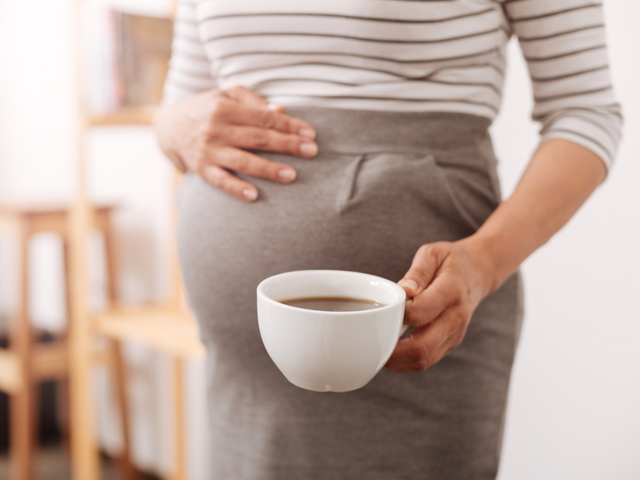
Caffeine is the most widely consumed psychoactive substance throughout the world 1. Caffeine can also lead to heartburn by causing the production of stomach acid.

Caffeine consumed during pregnancy can change important brain pathways that could lead to behavioral problems later in life according to new research.
Caffeine effects on pregnancy. Moreover caffeine exposure during sensitive windows of pregnancy may induce epigenetic changes in the developing fetus or even the germ cells to cause adult-onset diseases in subsequent generations. We discuss these research frontiers in light of emerging data. Caffeine intake is not recommended during pregnancy.
Caffeine can increase your blood pressure and heart rate and can lead to dehydration. The risk of miscarriage low birth weight and other adverse effects due to higher intakes of caffeine during pregnancy remains largely unclear. Other negative side effects of caffeine include high.
Impacts of Caffeine during Pregnancy A Snapshot of Caffeines Impacts. Caffeine is the most widely consumed psychoactive substance throughout the world 1. Caffeines Negative Impacts on Pregnancy.
Caffeines effects on gestational health have received. Pharmacological actions of caffeine suggest potential threats to fetal development from maternal caffeine consumption. In recent decades many observational studies of maternal caffeine consumption have reported potential increased risk for diverse negative pregnancy outcomes.
Sticking to the 200 miillgrams or less of caffeine a day can be difficult unless a pregnant woman carefully monitors her caffeine intake. That limit can be easily reached – and exceeded – by a. According to research done consuming caffeine may also lead to birth defects in the baby and even reduce fertility of the pregnant woman.
Another major side effect of consuming caffeine during pregnancy is premature delivery which can also lead to further complications both for the mother and the premature baby. However overwhelming evidence indicates that caffeine is not a human teratogen and that caffeine appears to have no effect on preterm labor and delivery. More research is needed before unambiguous statements about the effects of caffeine on pregnancy outcome variables can be made.
New research finds caffeine consumed during pregnancy can change important brain pathways that could lead to behavioral problems later in life. Researchers analyzed thousands of. The effect of caffeine on pregnancy outcome variables.
Hinds TS1 West WL Knight EM Harland BF. 1Center for Drug Abuse Research Howard University Washington DC USA. The American public consumes a wide array of caffeinated products as coffee tea chocolate cola beverages and caffeine-containing medication.
Caffeine consumed during pregnancy can change important brain pathways that could lead to behavioral problems later in life according to new research. Researchers analyzed thousands of brain scans. Caffeine can also lead to heartburn by causing the production of stomach acid.
These effects may be more noticeable as your pregnancy progresses. Thats because your bodys ability to break down caffeine slows so you end up with a higher level of it in your bloodstream. One study found that the amount of caffeine ingested while pregnant wouldnt have an effect on the babys sleep during the first three months of their life.
Researchers at the University of Pelotas looked at the children of nearly 900 women who consumed caffeine in pregnancy. Participants reported caffeine intake and pregnancy symptoms nausea vomiting and fatigue on a week-by-week basis from 4 weeks before the last menstrual period up to the most recently completed week of gestation. Blood samples for the analysis of cotinine levels were also drawn at the time of the baseline interview.
Caffeine intake in pregnancy is associated with problems for the baby during and after pregnancy. What is known is that caffeine does pass from mother to baby across the placenta during pregnancy and in breastmilk after birth. Unborn babies are less able to break down caffeine than adults.
As a stimulant caffeine tends to increases a persons blood pressure and heart rate. Both of these effects should generally be avoided during pregnancy. Caffeine also tends to increase the frequency of urination thus causing a decrease in body fluid levels and resulting in possible dehydration.
Caffeine Crosses the Placenta to the Baby. Caffeine is a stimulant found in tea coffee soft drinks chocolate kola nuts energy drinks and some over-the-counter medications. Coffee is one of the most common sources of high caffeine intake.
During pregnancy caffeine clearance from the mothers blood slows down significantly.